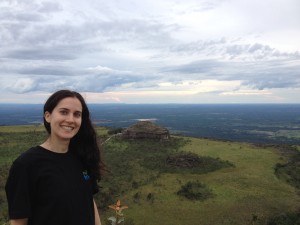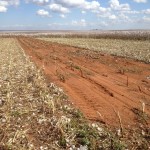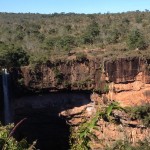My name is Alicia Speratti. I am a 4th-year PhD student at the University of British Columbia’s Institute for Resources, Environment, and Sustainability, in Vancouver, Canada. I am originally from Paraguay, but have now spent 15 years(!) living in Canada and other places. Most recently, my research on soil organic matter dynamics in agricultural soils took me to the Cerrado region of Mato Grosso, Brazil where I spent the last year and a half in Cuiabá working with biochar. Biochar is charcoal made from any kind of organic material (e.g. crop residues, wood chips, animal manure) burnt at temperatures below 700 degrees in the absence of oxygen and made specifically as a soil amendment (Lehmann and Joseph, 2009, Biochar for environmental management:science and technology). Making charcoal is not something new. Humans have made charcoal since the discovery of fire and many pockets of land with carbonized material buried in the soil are still found today, as seen in the Amazonian Dark Earths. However, only more recently has research begun to examine the effect of biochar made specifically to add to soil to improve its physical, chemical, and biological characteristics.
My PhD research will examine the use of biochar made from locally available agricultural residues to improve the water retention and carbon stocks of Arenosols found in the state of Mato Grosso, near Cuiabá. Increasing water retention of these sandy soils could improve production of maize, an important crop in Mato Grosso often grown in these soils and during the dry season. I hope that by improving understanding of soil organic carbon response to biochar amendments, I will be able to contribute to sustainable agricultural management practices that encourage agricultural resilience to regional climate change in the Cerrado.
- Cotton crop remains on an Arenosol
- Sunset over Cuiabá
- Waterfall in Chapada dos Guimarães National Park



